Description
ABSTRACT
Issues in Taxation of E-Commerce in Nigeria
Olagoke Odubunmi*
The emergence of e-commerce as a result of the development of the internet has brought with it a number of legal, fiscal and socio-economic issues. With the development of information technologies as alternatives to paper based businesses, new types of contracts, goods and services are being created such as virtual goods, digital contracts, online transactions etc. Armed with technology, new models of commercial interactions are developing as businesses and consumers participate in an increasingly virtual or electronic market place while reaping its attendant benefits. New technology has made it possible to pay for goods and services over the internet and in many instances, displace the need to handle physical cash. As a result, certain conventional considerations in the traditional way of doing business such as the medium of the transaction or the geographical location of the parties have lost their relevance. The increase in electronic commerce (e-commerce) presents a daunting challenge to tax administrators’ traditional approaches to both direct and indirect taxation. Unlike in traditional commercial activities where such details of transaction as the amount involved, parties to the transaction and the place in which the transaction was carried out can easily be established, e-commerce, in contrast, mainly occurs in the virtual and borderless world of the Internet, with the aid of a network of computers within which untraceable trade can be carried on from obscure or even unidentifiable locations around the world, thus posing serious challenges to the effectiveness of tax authorities most especially in Nigeria where there is presently no legal framework for the regulation and taxation of electronic commerce. Within the confines of the current legal, fiscal and regulatory incapacitation, this article seeks to appraise the recondite feasibility of taxing electronic commerce in Nigeria.
INTRODUCTION
Developments in Information and Communication Technology (ICT) have had the greatest influence on society in recent times. Advances in information and communication technologies and the emergence of the internet have revolutionalised business activities by enabling new ways of conducting business referred to as ‘electronic commerce’.1 It consists of the buying and selling of products or services over electronic systems such as the computer and other computer networks.2 Beyond the Global System for Mobile Communication (GSM), the advent of the internet and its related infrastructures in the last two decades has driven significant shifts and restructuring in the way business is done across the globe where a sizeable percentage of commercial activities are now being conducted electronically.3 While globalisation has generally fueled the tempo of world trade,
* LL.M, BL. Legal Practitioner and Tax Law Researcher at Maples & Temples, Lagos.
- Vladimir Zwass, ‘Electronic Commerce and Organizational Innovation: Aspects and Opportunities’ (2003) 7(3) International Journal of Electronic Commerce 7-37.
- The use of commerce is conducted in this way, spurring and drawing on innovations in electronic funds transfer, supply chain management, internet marketing, online transaction processing, electronic data interchange (EDI), inventory management systems, and automated data collection systems. See Akintola K.G., Akinyede R.O., & Agbonifo C.O., Appraising Nigeria Readiness for E-commerce Towards: Achieving Vision 20: 2020, (2011) 9(2) IJRRAS 331.
- Joe Duke II, Sunday Efiok, Kechi Kankpang & Emmanuel Emenyi, ‘Impediments of Electronic Commerce as a Tax Revenue Facilitator in Nigeria’ (2013) 6(6) International Business Research 152. ISSN 1913-9004, E-ISSN 1913-9012 Published by Canadian Center of Science and Education. A large percentage of electronic commerce is conducted entirely electronically for virtual items such as access to premium content on a website, but most electronic commerce involves the transportation of physical items in some way. Online retailers are sometimes known as e-tailers and online retail is sometimes known as e-tail. Almost all big retailers have electronic commerce presence on the World Wide Web. See Akintola et al., ibid 331.

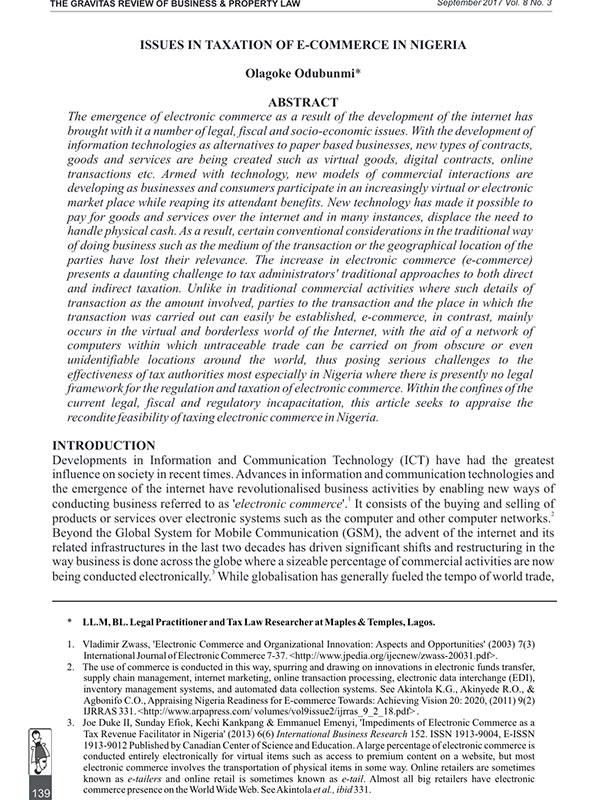
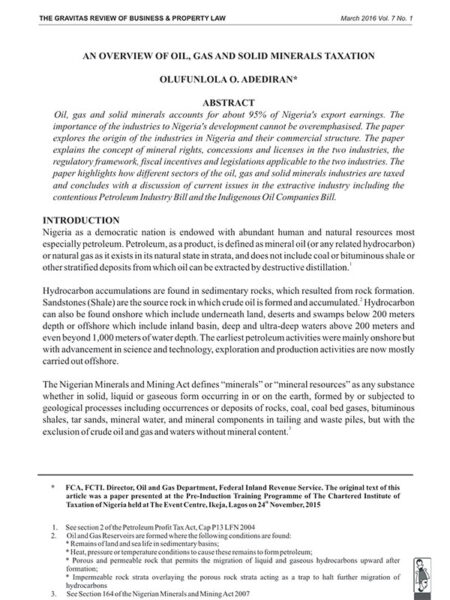
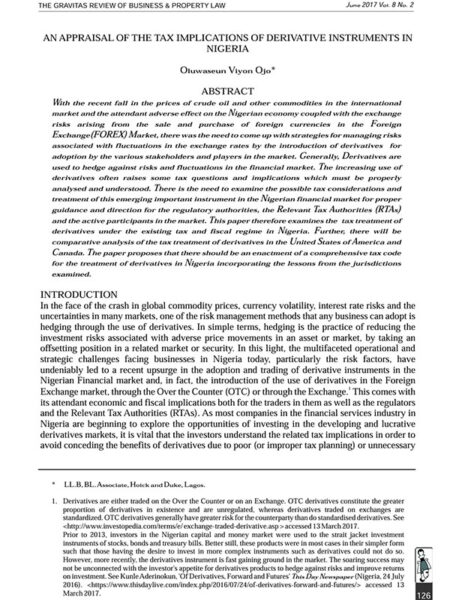
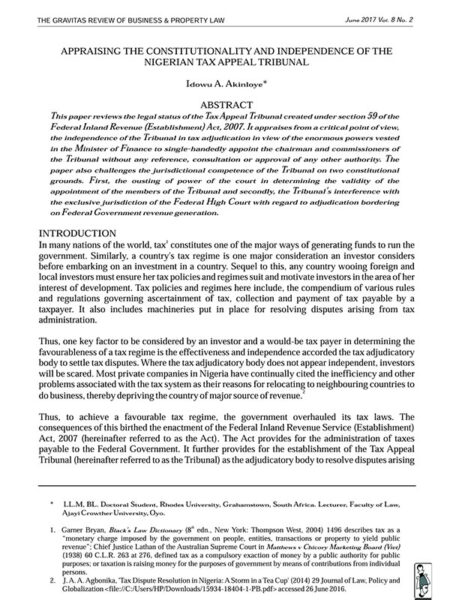
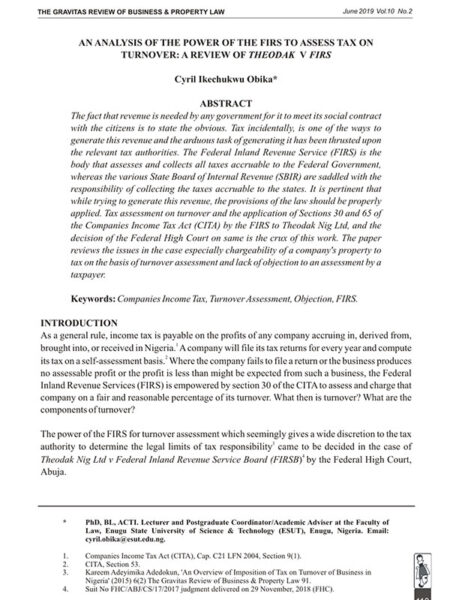


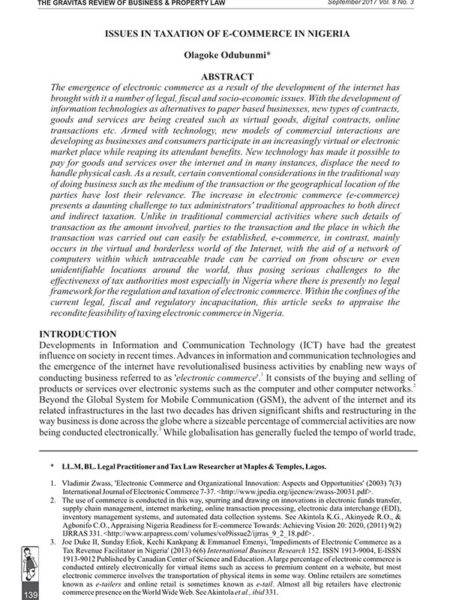
Reviews
There are no reviews yet.